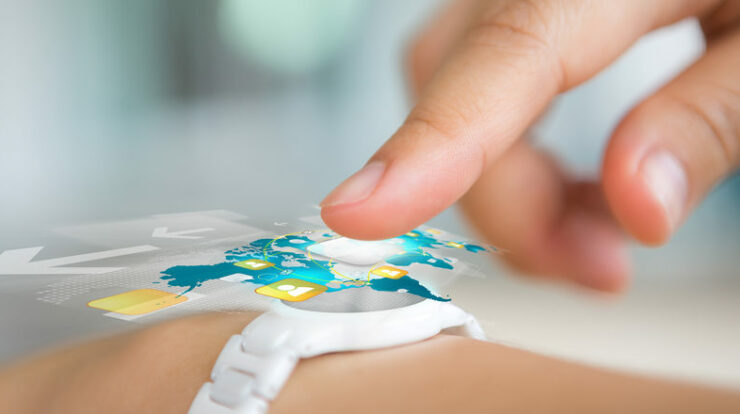
Wearable technology, also known as wearables, is a group of electronic devices worn as accessories or embedded in clothing. Sometimes, they are even implanted in the bodies of the user. Examples of these health tech devices in this category are fitness trackers and smartwatches. Most of these devices are designed to be worn throughout the day for maximum impact.
Until a few years ago, wearable technology was only used in labs and clinics. The doctors would use the devices to collect essential patient data that will help them with recovery. For instance, some devices were used to track the mundane ebb and flow of glucose levels. Devices like robotic exoskeletons were established to help stroke victims recover. Even when they were used only in labs and clinics, these devices helped improve countless lives.
Over the past half a decade, the use of wearables and health tech has almost quadrupled, going from 9 percent to 33 percent in just five years. This growth can be attributed to the development of demand for wearables.
How is Wearable Technology the Future Of Healthcare
Wearable technology is a significant part of the future of healthcare. Below are some reasons why this is the case;
- They help eliminate common inconvenience in the medical industry
As it is, the conventional healthcare system is riddled with challenges and inconveniences. For instance, patients have to wait weeks to get appointments with specialists. Practitioners in the field also have to face numerous challenges when transferring medical reports from one office to the next. Patients also have to pay expenses to get tests done. All these issues have hindered the development of the industry.
Connected devices and wearables help resolve and eliminate these issues by synchronizing patient data and electronic medical records. By doing so, the process is more straightforward, and the patient experience is improved significantly.
- Wearables also help improve healthcare delivery
The pandemic has seen a significant increase in the use of digital healthcare. Wearables are a substantial part of digital healthcare. These devices provide people with the tools they require to get in touch with healthcare providers between visits. They also come in handy for patients with chronic conditions. In such cases, healthcare tracking devices like glucometers and smart scales are essential. They provide clients with the ability to monitor their health conditions without leaving their homes. This is both convenient and life-saving for the patients. Wearables also help patients eliminate the limitations that are brought by their medical needs.
- They help doctors do their jobs better
Additionally, wearables help medical practitioners to work to the best of their abilities and save lives. They allow doctors to receive relevant and accurate data. They also enable medical practitioners to take action way faster. For instance, early detection of heart problems can help prevent future heart attacks, leading to significant challenges and sometimes death. These devices also help improve the accuracy of medical diagnosis. For instance, tracking devices can collect critical data that medical practitioners can use to diagnose better.
- They are better at predicting death risks
When dealing with older patients, wearable technologies help them live longer by detecting death risks. For instance, they help examine body activity hence allowing easy detection of heat strokes. They are also beneficial with mental status monitoring and preventing deaths caused by arrhythmic issues. These wearables help with faster clinical decision making and can save lives.
Examples of popular wearables changing the face of conventional healthcare
Below are some wearables that are taking over the future of healthcare;
- Fitness trackers
These are devices that help patients move and sleep better. They help promote overall health by providing ideal recommendations. Fitness trackers are typically synched to smartphone apps, which makes them easy to use. Note that fitness trackers are some of the most popular products in wearable technology.
- Smartwatches
Smartwatches account for about 60 percent of wearable technology. The future of healthcare will see smartwatches being used for numerous health benefits. The devices can be used for various purposes, like counting steps and other clinically viable features. Smartwatches can currently be used to monitor health rhythms and issue alerts in case of any health scare.
- ECG monitors
These devices are used to measure your heart’s rhythm and electrical activity. They connect the patients to their doctors without any physical contact. They do this by sending readings to the doctor. Most of these devices also can detect health complications like atrial fibrillations. It is safe to say that ECG monitors help to save lives.
- Biosensors
These wearables come in the form of patches. They allow patients to move around while gathering information like their heart rate, temperature, and respiratory health. They are significant in improving patient outcomes.
- Blood pressure monitors
These wearables monitor a patient’s blood pressure fully. They provide an alarm to warn a patient to reduce efforts and send input to the doctor when necessary. They can be used to diagnose and monitor hypertension and detect cardiovascular risks.
Final word
The wearable industry is one of the fastest-growing markets in healthcare. The products mentioned above are just a few of what the market has to offer. The devices also provide numerous benefits as part of the online revolution of healthcare, which is why wearables are the future.


